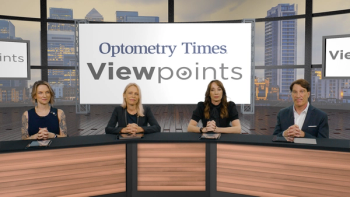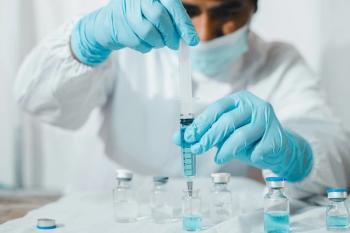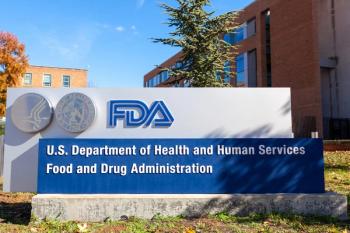
Study shows increased IPL sessions increased response rate of treatment in moderate-to-severe MGD
The study authors also noted that patients responding well to routine intense pulsed light sessions do not need to undergo additional sessions.
A new study reports that increasing the number of intense pulsed light (IPL) sessions is beneficial for patients with moderate-to-severe meibomian gland dysfunction (MGD) to increase the response rate of treatment.1 The study was conducted by Yang Lu, MD, first author, and colleagues from the Eye Institute and Department of Ophthalmology, Eye & ENT Hospital, Fudan University, and the NHC Key Laboratory of Myopia, Fudan University, both in Shanghai, China.
The clinicians conducted this retrospective study to determine if 90 Asian adult patients with moderate–to–severe MGD could benefit from increasing the number of IPL treatment sessions. Moderate-to-severe MGD is classified as stages 3 to 4.
The patients were divided into 2 groups: 30 patients in group 1 underwent 5 sessions of IPL and 63.3% of them also had expression of the meibomian glands, and 60 patients in group 2 underwent 3 sessions of IPL and 60% also underwent meibomian gland expression.
Results of group comparison
The investigators found that in both groups the symptoms and most clinical indices improved after the IPL treatment sessions finished.
They did not observe a statistical difference in any of the improvement levels of all symptomatic and physical indices, including the ocular surface disease index, tear film break–up time, Demodex, corneal staining, meibum quality, meibomian gland expressibility, and MGD stage (p ≥ 0.05 for all comparisons) between the 2 groups at any time, that is month by month and at the final visit.
However, the investigators did see that the response rate in group 1 after the 5 session of IPL increased compared to the patients in group 2 who were treated with 3 session of IPL treatment (70.0% vs. 63.33%, respectively).
The authors commented, “Increasing the number of IPL sessions is beneficial for patients with moderate-to-severe MGD to increase the response rate of treatment rather than the improvement level. However, there is no need for patients who respond well to a routine number of IPL treatments to undergo additional IPL sessions.”
Reference:
Lu Y, Gong L, Yin Y. Need to increase the number of intense pulsed light (IPL) treatment sessions for patients with moderate to severe meibomian gland dysfunction (MGD). Curr Eye Res. 2024;49:362–367; https://doi.org/10.1080/02713683.2023.2297344
Newsletter
Want more insights like this? Subscribe to Optometry Times and get clinical pearls and practice tips delivered straight to your inbox.









































